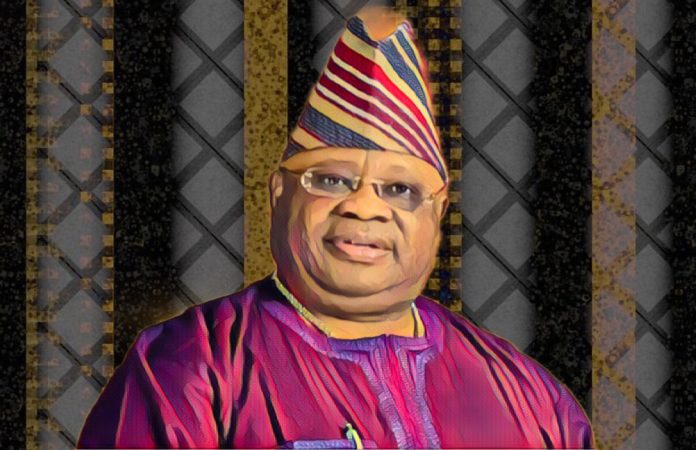In Osun State, the recent suspension of some traditional rulers by the government has stirred a complex mix of reactions within the Iree community in Boripe Local Government. This development, covered in a report by Lateef Dada for The Sun Nigeria, highlights the intricate dynamics of traditional leadership and local politics in the region.
Governor Ademola Adeleke’s decision to suspend certain monarchs, including Oba Raphael Oluponle, has led to a split in opinions among the residents of Iree. The National Resident of the Iree Progressive Association (IPA), Adenrele Afolabi, expressed support for the governor’s move during a press conference at the Iree town hall. Afolabi commended the governor for correcting past mistakes and reinstating the power of kingmakers in the process of selecting a new ruler. This move, he argued, demonstrates the governor’s commitment to upholding the customs and traditions of the Iree people.
In stark contrast, Prince Adebayo Adeleke, representing six ruling houses and participants in royal ritual rites, opposed the government’s actions. At a separate gathering in the town, Prince Adeleke insisted that the governor’s attempt to install a new king after Oba Oluponle’s installation would fail. He emphasized the community’s support for the current monarch and criticized the recent meeting as politically motivated, dominated by members of the Peoples Democratic Party (PDP).
Oba Oluponle, the suspended monarch, maintained his stance as the Aree of Iree. He urged the town’s residents to remain law-abiding while awaiting the court’s decision on the matter, hinting at a legal challenge against the government’s white paper.
The situation in Iree reflects a broader narrative about the role of traditional rulers in Nigerian society and the complex interplay between customary authority and governmental power. While Afolabi’s comments suggest a desire for a return to traditional selection processes, Prince Adeleke’s remarks indicate a reluctance to disrupt established leadership, irrespective of the government’s intervention.
This divide raises critical questions about the legitimacy and selection of traditional leaders, the influence of political parties in local governance, and the preservation of cultural norms and practices. The involvement of the IPA, ruling houses, and community members in this debate shows the deep-rooted significance of traditional leadership in local governance and cultural identity.
Moreover, the situation in Iree is a microcosm of similar challenges faced in other Nigerian communities, where the appointment of traditional rulers often becomes entangled in political and legal disputes. These disputes sometimes reflect deeper societal issues such as political patronage, community representation, and adherence to traditional protocols.
The ongoing controversy in Iree also underscores the need for clear and transparent processes in the selection and recognition of traditional rulers. It highlights the importance of balancing respect for cultural traditions with the principles of modern governance and the rule of law.
As the community of Iree navigates this complex situation, the outcomes will likely have significant implications for the future of traditional leadership in the area. The court’s decision on Oba Oluponle’s status and the subsequent actions of the state government will be pivotal in determining the path forward for the community.
In conclusion, the events in Iree offer valuable insights into the challenges of managing traditional authority within the framework of contemporary state governance. They demonstrate the need for careful consideration of cultural, legal, and political factors in decisions affecting traditional institutions. As the situation evolves, it will be crucial for all stakeholders to engage in dialogue and seek solutions that honor the heritage and aspirations of the Iree community while aligning with broader societal norms and legal frameworks.



